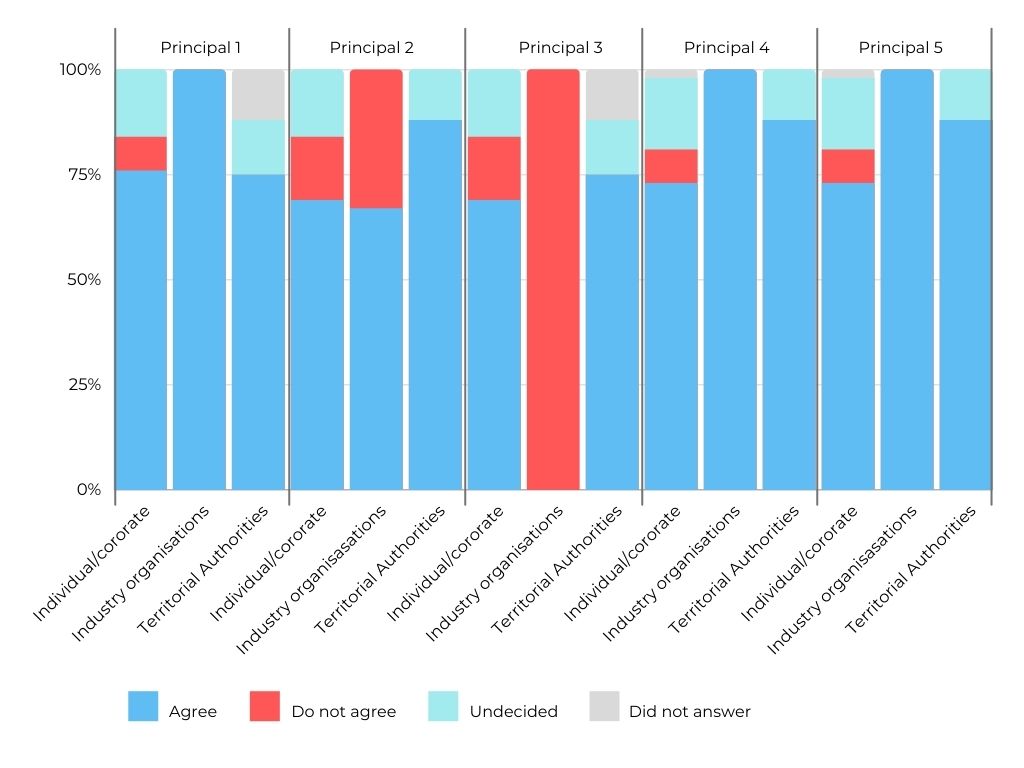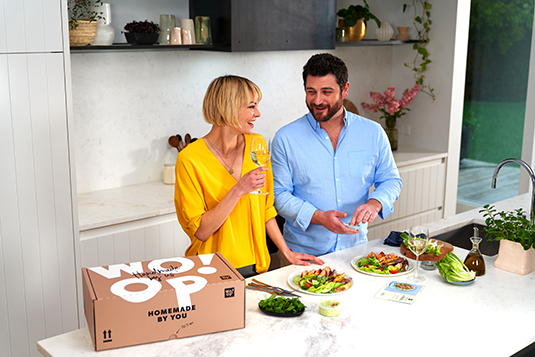Funding application for 2025 – 2026 are now open Apply Now
Member Portal
Not a member? Join us here
General consensus on the principles and feedback have given us a direction for the next steps of a roadmap to product stewardship.
05 November 2021
In June 2021, our Compostable Packaging Technical Advisory Group (CTAG) undertook a “Use Case” consultation with stakeholders connected to compostable packaging.
The aim of the use-case was to gain consensus on which material and application combinations should or should not be allowed into a product stewardship scheme for compostable packaging.
These were tied to five overarching key principles:
60 submissions were received. They showed strong support for the five key principles with work suggested to refine the principles.

The consultation suggested a range of application and material-type combinations, with submitters suggesting further definition of the principles taking precedence over specifying application/material combinations.
We also asked stakeholders about their support for such an agreed use-case and the prescribed application/material type combinations. Support for the use-case concept was high, as well as strong support for ingredients labelling to a managing entity.
Support for items being allowed in the system if they did not meet the use-case criteria but had a potential second-life as a caddy liner, was not as highly supported.
The CTAG will now progress working to define further the key principles, as an alternative to prescribing application/material type combinations.
This will form part of the “Roadmap to product stewardship for compostable packaging” document, currently under construction.
Read the background to the use case consultation
View the webinar (members only, create an account if you haven’t already)
Foodtech Packtech, which was postponed due to the pandemic, is New Zealand’s largest food manufacturing, packaging and processing technology trade show.
13-15 April 2021
The Packaging Forum CEO Rob Langford will speak about whole of material, industry-led solutions and regulated product stewardship. The Forum will also have a stand (3175) so be sure to drop past and say hello.
New Zealand-owned and run food box company and Soft Plastic Recycling Scheme member Woop has rolled out their ‘Back to Base’ product stewardship programme across all of their delivery areas.
19 October 2020

The scheme sees customers return their clean and dry packaging so it can be sorted and recycled.
Woop Founder Thomas Dietz says customers have been very enthusiastic about the initiative, as demonstrated by the high level of participation in the programme. “Customers appreciate the certainty the programme provides in knowing that the packaging is being properly recycled in New Zealand.”
We chatted to him to find out more about the company and its sustainability work.
Tell us a bit about Woop – how it started and what you hope to achieve.
Since Woop started five years ago we have placed a huge focus on our commitment to the environment and we’re excited by what we can continue to do to improve.
We brainstorm and create globally inspired recipes and select and prepare ingredients using the finest local produce, ahead of time, so our customers receive beautiful ingredients and hand-crafted sauces right to their door.
The company clearly has a strong focus on sustainable practices, tell us a bit more about that.
One hundred percent of our packaging is now recyclable or compostable, and we take responsibility for that through our Back to Base programme. But our commitment to sustainability goes further than that. We see our locally sourced ingredients, portion control to avoid food waste, and delivery emissions offsetting as essential parts of our sustainability focus too.
What is the drive behind this?
As a team we are committed to reducing our impact on the environment and as a values-led business we are very passionate about it. We want to make sure that we are doing more than just our part and take responsibility to continually improve.
Was sustainability always part of the Woop business plan, or did it develop over time?
We’ve always had sustainability as a core focus of our values, however how we have engaged and implemented changes and improvements has definitely developed over time as we have learnt more.
What have been/remain the most challenging packaging items to make sustainable?
The sachets were the most challenging, as they aren’t able to be recycled through kerbside recycling. However, by partnering with Future Post we are now able to recycle them.
We have now been able to find an end-of-life recycling solution for all of our packaging. This took a lot of research.
Would you say your focus on sustainability is a point of difference or something which is becoming something of standard practice?
We see our concrete sustainability actions and our unique Back to Base product stewardship programme as a point of difference.
How do you engage with your customers to encourage them to deal with your packaging responsibly?
We are fortunate to have a direct relationship with our customers and are able to engage with them directly via phone and email.
This allows us to communicate the importance of collaborating with them on how to properly recycle the packaging they receive. This direct relationship also allows our customers to easily provide feedback and suggestions.
How have you approached sustainability with your suppliers and what are the biggest challenges there?
We require our suppliers to share their plans on improving their own sustainability and support them to make the changes we require to be more sustainable. For example, reducing packaging used in the supply chain and reducing food wastage.
What do you see as the biggest challenges for packaging sustainability overall?
Education is a big challenge. It’s really important for the public to understand the full picture when it comes to the environmental impacts of using, and not using packaging, for food.
At the moment it can be confusing for customers as to what to do with used packaging and how to make sure it’s properly recycled. There is also a lack of understanding on the functional benefits packaging brings in reducing food waste.
Do you think ‘groceries as a service’ – where many locally-based companies supply locally-sourced, regional, ready to cook produce to customers – will ever come to rival or even overtake traditional supermarkets?
These types of services are becoming more and more popular and we believe this new way of eating will continue to grow as people get busier and look to outsource parts of their lives.
What do you think the future holds for Woop in terms of business growth and the sustainability challenges that brings?
We are excited by the challenges ahead with running our Back to Base programme and being able to continue to run this initiative as the number of weekly deliveries grows. We are also continually looking for other areas we can improve and act on.
What motivated you to join The Packaging Forum?
We were motivated to join the Forum for the support network it provides and the connections it has in the recycling industry.